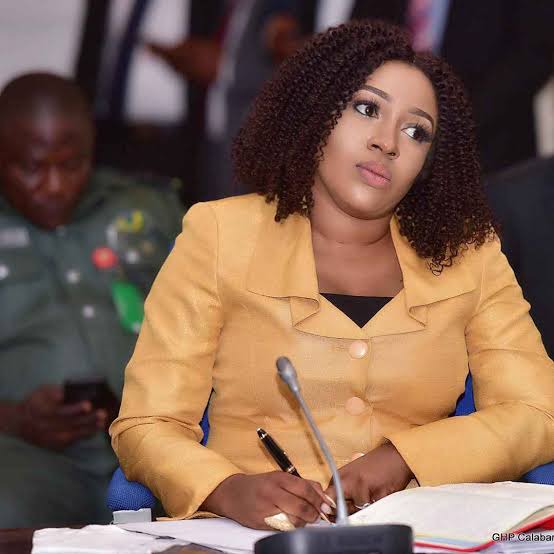The controversial Ministry of Humanitarian Affairs Disaster Management and Social Development was established in 2019. It was President Buhari’s knee-jerk response to problems exacerbated by his administration. In truth, until Buhari’s emergence as a civilian president, Nigerians had never had it so bad. His uncompassionate governance, lack of direction, and religious bigotry, plunged the nation into mass poverty. Added to the ill-effects of economic collapse caused by disastrously poor governance was the humanitarian crisis caused by burgeoning insecurity and herdsmen/farmer conflicts which left millions of innocent law-abiding citizens displaced and in dire circumstances.
By 2019, the situation had deteriorated so badly to the extent that it could no longer be ignored. It was the second time Nigeria had faced a major humanitarian crisis, the first was at the end of the civil war. Back then, no dedicated ministry was created to solve the problems. The nation recovered because the ministries of health, education, works and housing rebuilt hospitals, schools, infrastructure and houses respectively.
The decision to create a dedicated ministry in 2019 was predicated upon the known high levels of corruption and inefficiency in existing ministries which meant that they no longer functioned effectively and could not be trusted to successfully undertake urgent humanitarian programmes. The new Ministry of Humanitarian Affairs was supposed to be devoid of such limitations. Unfortunately, right from its inception, allegations of corruption, inefficiency and poorly conceptualised programmes surrounded the ministry.
Although its stated mission is to “develop humanitarian policies and provide effective co-ordination of national and international humanitarian interventions”, the lure of cash proved too much for ministry officials. They became billionaires as COVID-19 palliatives were sold or hoarded in warehouses and the minister quite ludicrously handed out bundles of currency notes to unidentifiable persons in the name of allegedly disbursing billions in cash.
Tourism can be Nigeria’s next oil – Runsewe
Zungeru Dam: Niger communities sue FG, HYPPADEC over alleged unpaid compensation
Added to these scandals was the totally discredited school-feeding programme under which billions were allegedly used to feed school children even when they were not in school! The lack of response or appropriate action to rectify these issues illustrate how despite the anti-corruption war being one of Buhari’s major campaign promises, corruption thrived under his watch. The most striking and enduring of President Buhari’s published pictures was the one of him picking his teeth barefooted in the Villa presidential office while the nation burned.
The suspension of current the minister for Humanitarian Affairs, Betty Edu, has shed light on the ongoing totally opaque and inappropriate manner in which affairs of the ministry and perhaps many other ministries are conducted. She requested that the sum of N585 million be paid into a personal account which she claims is “normal” practice in her ministry and follows “due process”! She somehow believes that despite extant law it is not illegal for public funds to be lodged into civil servant’s personal accounts. It is nothing short of an insult to tell the public that such behaviour follows “due process”.
Almost every business or social club operates bank accounts whose signatories are their current office holders, and any time their term of office expires they write to the bank to authorise change of signatories. It is totally unacceptable for any sort of public funds to be transferred to personal accounts and disbursed by sole signatories. Quite reprehensibly in federal ministries, not only is it acceptable but once money has been moved to a civil servant’s personal account it’s deemed to have been “spent” in accordance with due process!
Every year the Auditor-General of the Federation reports billions unaccounted for in terms of unretired vouchers relating to monies paid into the personal accounts of civil servants which have not properly been explained, and which indeed there is no intention of ever explaining! The Economic and Financial Crimes Commission (EFCC) alleges that the real beneficiaries of such opaque funds are ministers, their colleagues and friends. There could be an element of truth to the allegations because Edu openly paid an unnecessary “courtesy call” on the Minister of Interior, Tunji-Ojo, who said “I like working with focused people” only for reports to emerge that his company was awarded a N3 billion “consultancy” contract by her ministry.
The alleged advantages of consultancy contracts are that there are no structures to be built and no bill of quantities to be verified, the only requirement for payment is that a report be submitted. It insults our combined intelligence and sensibilities to be told that such unethical and immoral behaviour follows due process and isn’t illegal. Unfortunately, it seems as though once in public office in Nigeria, unethical behaviour is quickly learned and accepted as the norm.
However, nobody should be carried away by revelations coming from EFCC concerning the monumental wealth and assets Edu has allegedly amassed despite being employed by government most of her young life. The EFCC habitually makes mindboggling allegations of corruption but is serially unable to secure successful convictions of perpetrators.
As it stands, they have approached the Court of Appeal to set aside a no-case ruling granted on December 7, 2023, to a former governor of Niger State, Babangida Aliyu, over an alleged N4 billion fraud. The commission struggles to overcome the problem that the bulk of top-level corruption in Nigeria is unethical and immoral but not illegal! The immediate lessons to be leant from all this brouhaha is that ethics and morality set far higher standards than legality and under no circumstances should public funds be paid into any civil servant’s personal account.

 Join Daily Trust WhatsApp Community For Quick Access To News and Happenings Around You.
Join Daily Trust WhatsApp Community For Quick Access To News and Happenings Around You.

